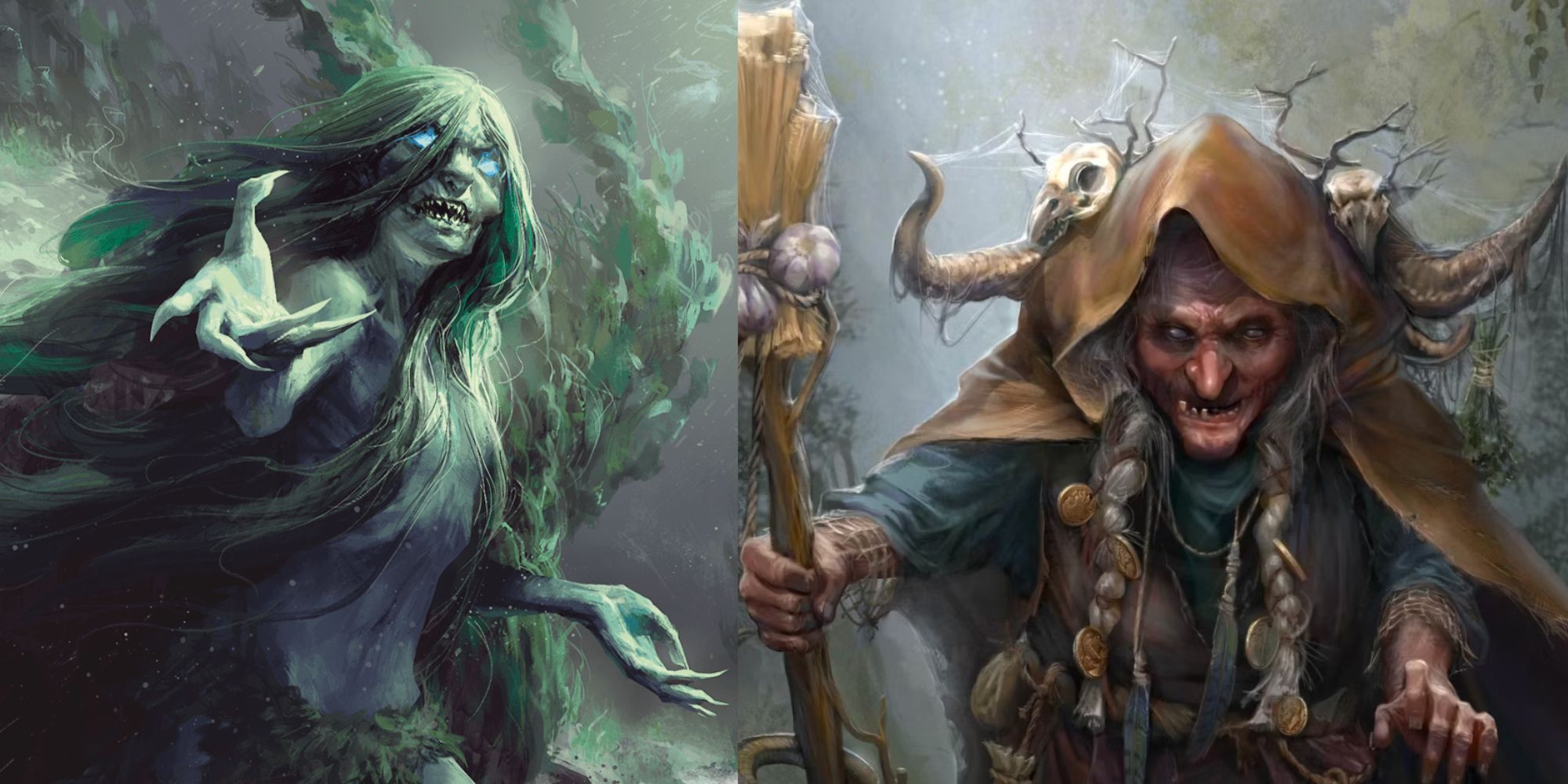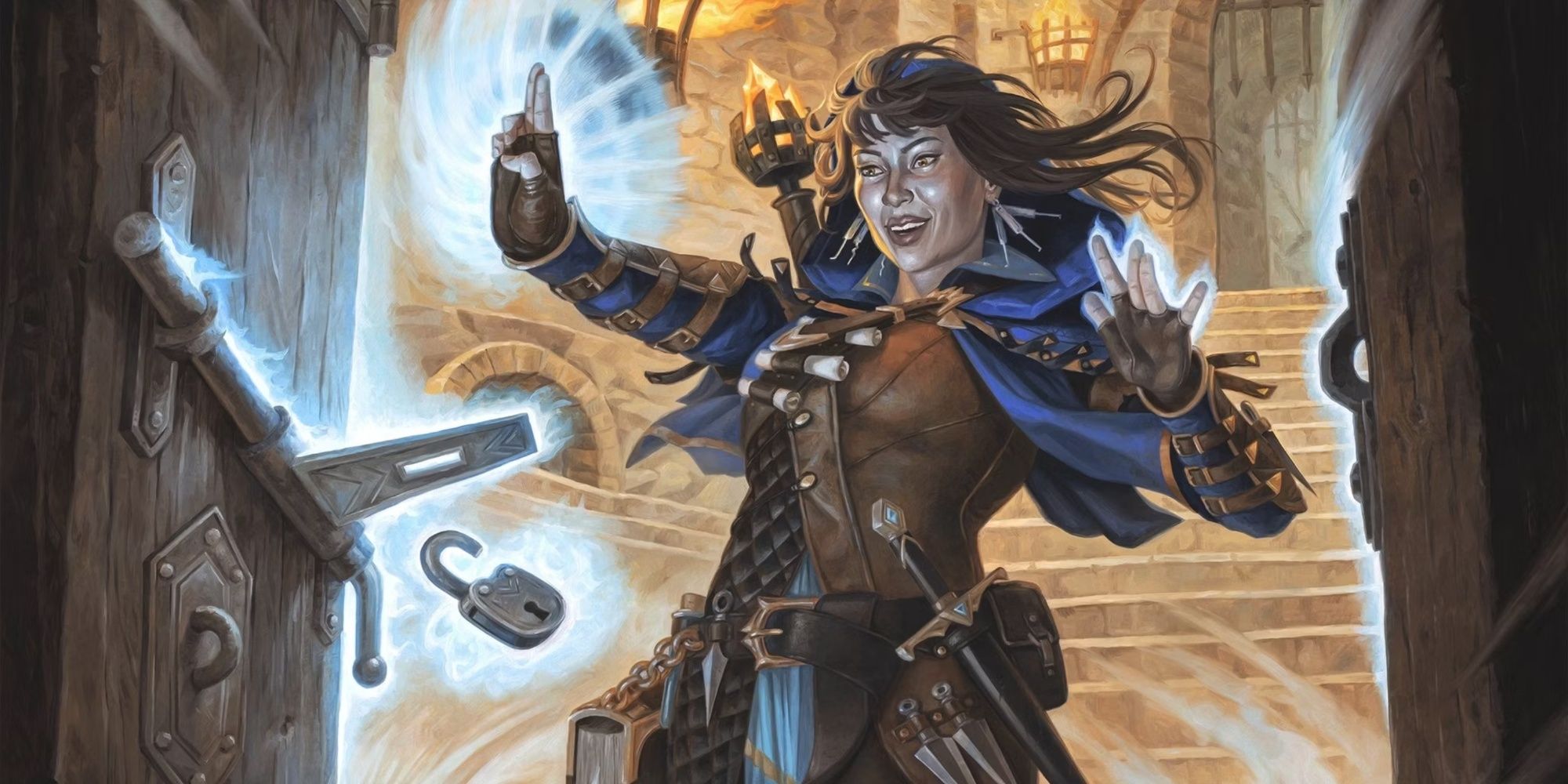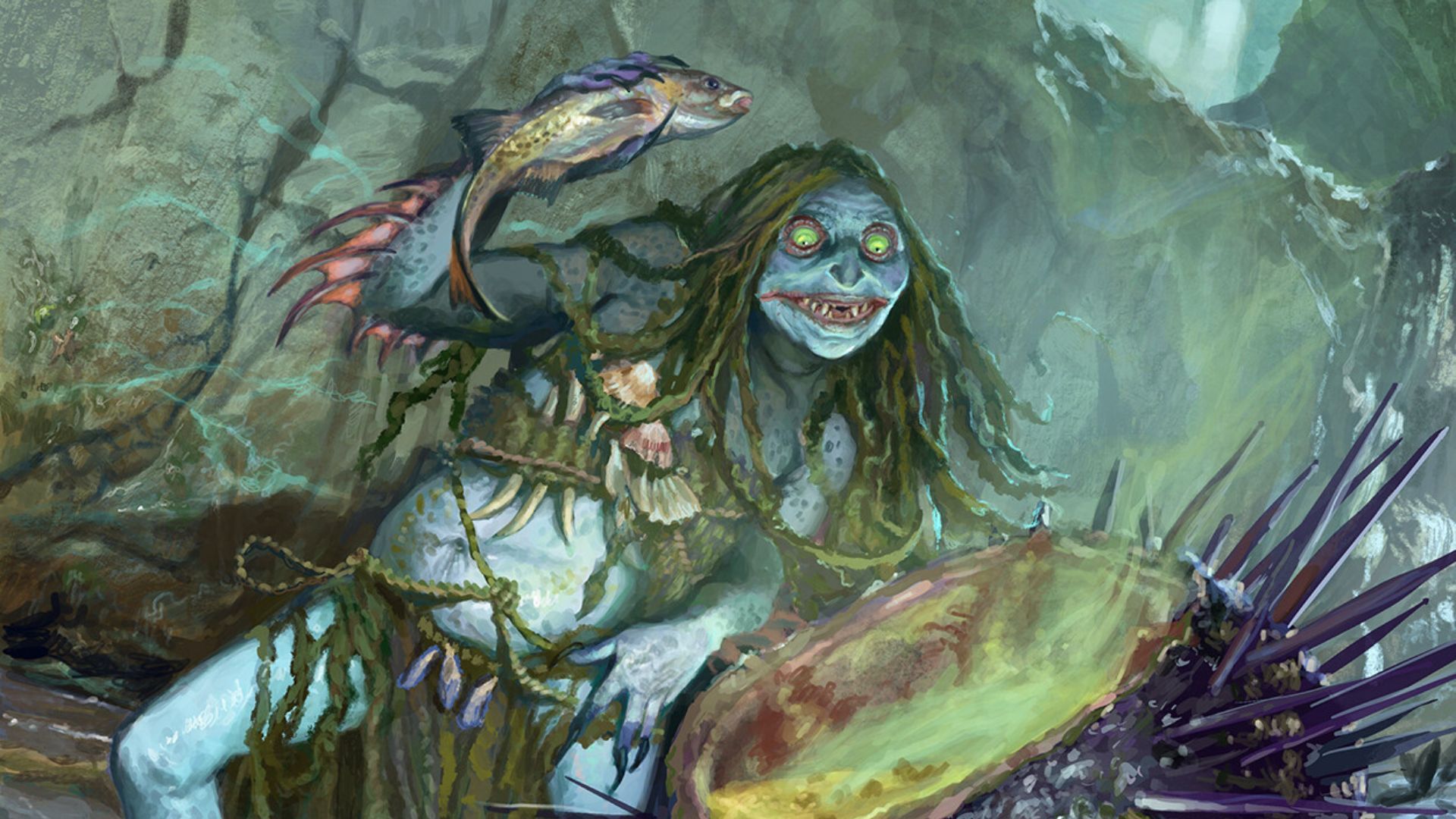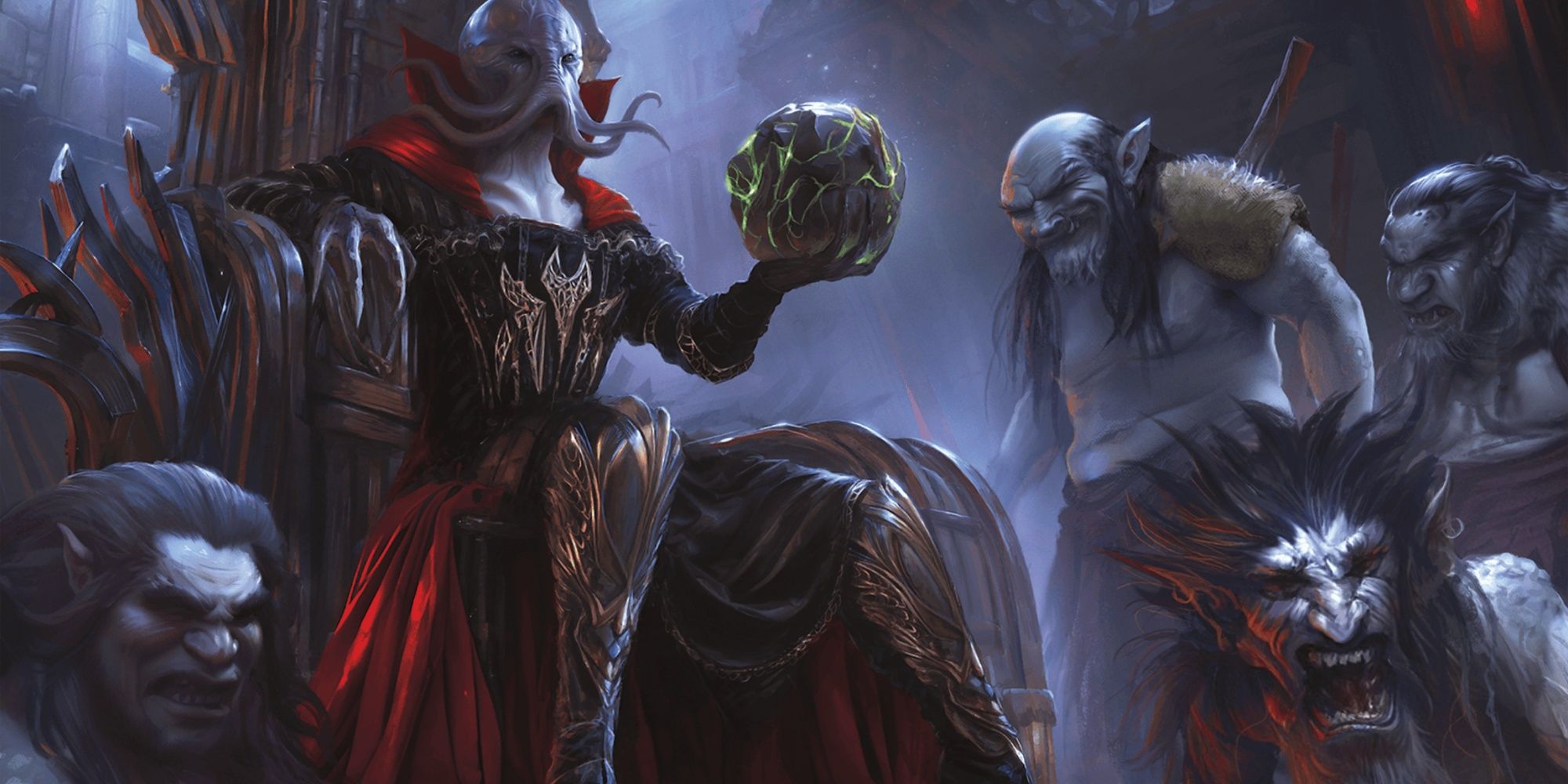Quick Links
Hags are a great early-game encounter inDungeons & Dragons.
They’re solitary, have lairs and eat children.
These features are all great for setting up an isolated adventure that can then lead to further escapades.

They aren’t without challenges, however.
Keep your party rolling the dice with excitement.
The stat sheet and lore of the hags injects more complexity than most creatures of the same level.

Annis Hag by Peter Bergting
Sea Hag
2
Coasts
Theseamphibious hags can be used for nautical adventuresor brought inland via large rivers.
Fate Hag
4
Extraplanar
Prophecies given by these hags can be great foreshadowingfor longer campaigns.
Night Hag
5
Ethereal
The only hag to be classed as a fiend and not a fey.

Annis Hag by Peter Bergting
Theirability to haunt nightmares is a great adventure hook.
The most suitable for anearly game encounter are the sea and green hag.
They appear in common enough regions that an adventurer doesn’t need to venture far.

Via Wizards of the Coast
Similarly, these low level hags are more plausibly involved in mortal affairs.
These more grounded hags are also easier touse narratively because of their regional effects.
The existence of a hag poisons the countryside for a mile in every direction.

Sea Hag by Andrea Piparo
This plays differently from intimidating bandits or deceiving kobolds.
They cantailor their words and combat strategy to matchtheir insight into the cast.
Bargaining Power
Hags have access to powerful spells that are far stronger than their level.

Hag’s Chamber by Clint Cearley
These gibe the hag a lot to offer a party willing to negotiate.
More specific to your campaign setting,hags are long-lived creatures that study the worldand magic in great detail.
A party seeking a caster for Legend Loremight be forced to barter with a Fate Hag.

What this misses is thathags are gleefully able to break any oaths, except to other hags.
This can make piloting one difficult for a new DM.
Green hags can displace themselves with an illusory duplicate, and sea hags can duplicate other people.

At the start ofeach player’s turn, peek if they have a counter.
If not, they either need to roll a save or become frightened.
Legendary Resistance
The level four fate hag is one of the earlier creatures to have legendary resistance.

Twice per day, it can choose tosucceed on a saving throw that it would have failed.
Make a note whenever legendary resistance is used, totrack the remaining uses.
Legendary actions take place at the end of another creature’s turn.
Typically a bossfight has three legendary actions per round, and moves thatconsume one or two of those actions.
The initial goal is toget into the habit of using them at all.
A trio of hags can can spells far above their level,but share charges on those spells.
They might also seek vengeance, sendingminions to chase down and attack the party.
The eye is the hags' weakness, so they’ll likelysend minions rather than expose themselves.
Without the players exploiting this weakness,the coven might more quickly recoverfrom the death of a member.
This comes at the cost of the hags always being able to watch them.
Learn how to roleplay the sinister Mind Flayers as a DM in D&D!